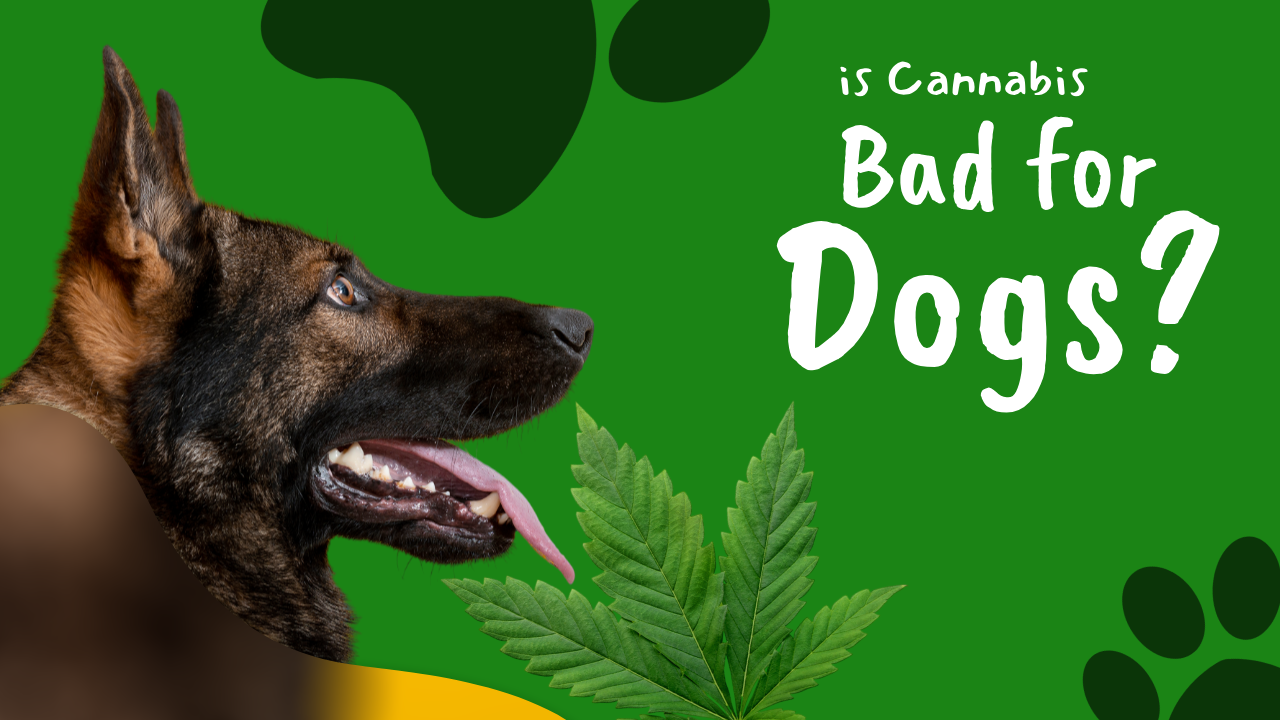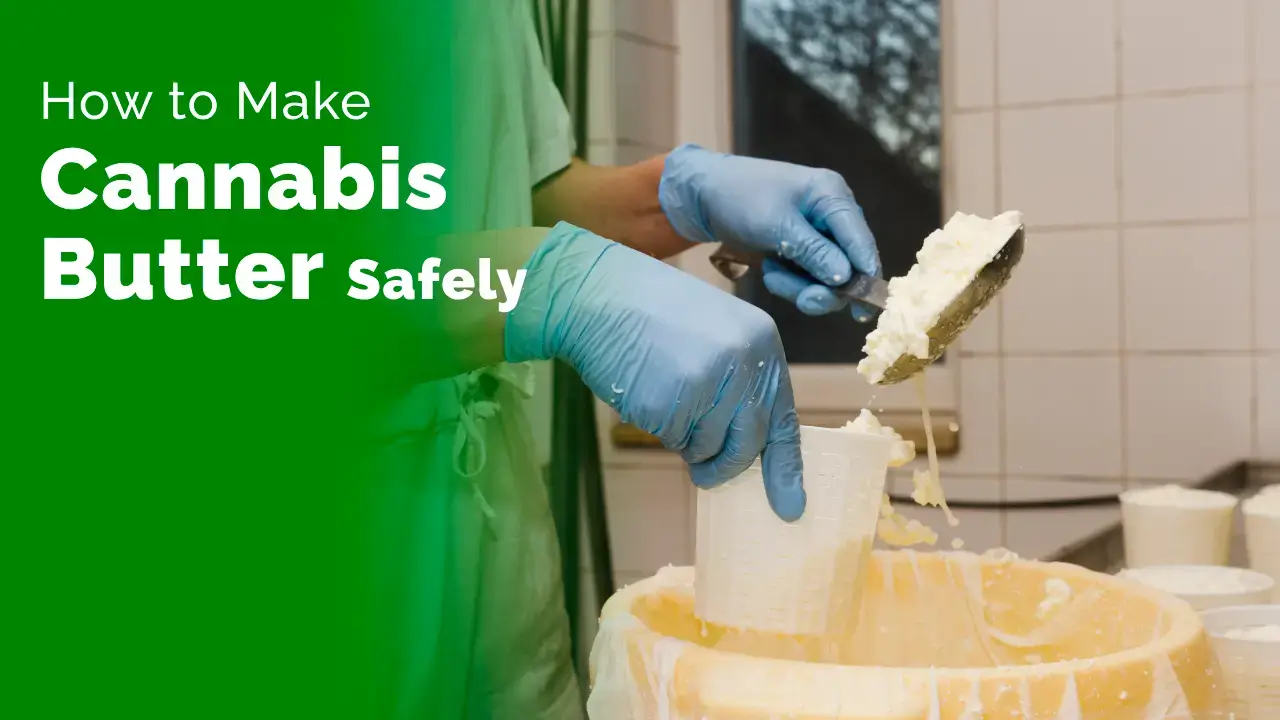There are links on this site that can be defined as affiliate links. This means that we may receive a small commission (at no cost to you) if you purchase something through the links provided on this website.
As cannabis becomes increasingly mainstream, more pet owners are asking a critical question: Is cannabis bad for dogs? Whether it’s through second-hand smoke, edible ingestion, or even curiosity about pet-safe products, understanding how cannabis affects dogs is essential for any responsible pet parent.
This comprehensive guide covers everything you need to know—from the risks and symptoms of cannabis exposure to the growing interest in medical cannabis for dogs and the controversy around cannabis-inspired pet names like “dog weed” or “cannabis names for dogs.
Key Highlights
- THC is toxic to dogs and can cause serious health issues even in small amounts.
- Common symptoms of cannabis toxicity in dogs include vomiting, disorientation, and bladder control problems.
- CBD may offer health benefits for dogs, but only under veterinary supervision and when THC-free.
- Most cannabis-related poisonings in dogs occur at home due to unsecured products or edibles.
Understanding Cannabis and Its Components
Before we dive into how cannabis affects dogs, it’s important to understand what cannabis is. The plant contains over 100 active compounds, but the two most significant are:
- THC (tetrahydrocannabinol) – The psychoactive compound responsible for the “high” in humans.
- CBD (cannabidiol) – A non-psychoactive compound believed to offer therapeutic benefits.Before we dive into how cannabis affects dogs, it’s important to understand what cannabis is. The plant contains over 100 active compounds, but the two most significant are:
While CBD is being studied for safe use in animals, THC is known to be toxic to dogs, even in small doses. So, when pet owners ask, “Is cannabis bad for dogs?”—the answer largely depends on the THC content involved.
Why Cannabis Can Be Dangerous for Dogs
The short answer is yes—cannabis can be harmful to dogs, particularly when THC is involved.
Common Risks of Cannabis Exposure in Dogs
- Neurological symptoms: disorientation, tremors, or even seizures
- Respiratory distress: especially from second-hand cannabis smoke
- Gastrointestinal upset: vomiting, diarrhea, or lack of appetite
- Cardiovascular issues: elevated heart rate or low blood pressure
- Behavioral changes: lethargy, restlessness, or unusual hyperactivity
Even a small amount of THC-laced edibles—or what some refer to casually as “dog weed”—can trigger these symptoms. It’s critical to treat cannabis as a hazardous substance around pets.
Symptoms of Cannabis Toxicity in Dogs
If your dog has ingested cannabis, look out for these warning signs:
- Excessive drooling
- Vomiting or nausea
- Wobbliness or lack of coordination
- Dilated pupils
- Heightened sensitivity to sound or touch
- Whining or agitation
- Urinary incontinence or bladder control loss
If you notice any of these symptoms, contact your veterinarian immediately. The earlier you act, the better your dog’s chances of full recovery.
What About Medical Cannabis for Dogs?
There’s growing interest in medical cannabis for dogs, particularly for conditions like anxiety, arthritis, and seizures. However, there’s a key distinction:
CBD vs. THC for Dogs
- CBD (Cannabidiol): Generally considered safe in controlled, vet-approved doses. It is non-psychoactive and may help with inflammation, pain, and anxiety.
- THC (Tetrahydrocannabinol): Toxic to dogs and should never be used in pet treatments.
If you’re considering CBD, consult a veterinarian and ensure the product is:
- THC-free (broad spectrum or isolate only)
- Specifically formulated for pets
- Third-party lab tested for safety
Even though CBD may sound promising, consulting with a vet is crucial before starting any regimen. Not all products are created equal, so make sure to check out more about hemp for dog options that are specifically formulated for pets and free from harmful THC levels.
Accidental Exposure at Home: The Real Risk
Most cannabis-related poisonings in dogs occur accidentally at home. Dogs are curious creatures and will often chew or ingest anything that smells interesting.
Tips to Prevent Accidental Ingestion
- Store all cannabis products in sealed, pet-proof containers and keep them out of reach.
- Be cautious during parties or gatherings where edibles or cannabis treats may be left around.
- Never smoke near your pets, as second-hand cannabis smoke can also affect them.
- Educate guests and household members about the importance of cannabis safety around pets.
In addition to preventive measures, some pet owners explore natural supplements to support their dog’s well-being. For instance, incorporating the best hemp oil for dogs into your pet’s routine may offer benefits for skin health, coat shine, and joint support, without the risks associated with THC exposure.
The Trend of Cannabis-Inspired Dog Names
An unusual trend among cannabis users is naming their dogs after strains or terms, like “Kush,” “Blaze,” or “Indica.” While it may seem funny or edgy, this trend can unintentionally normalize cannabis around pets, leading to careless storage or handling.
Experts recommend keeping fun separate from safety. While names are harmless, cultural casualness shouldn’t lead to real-life exposure risks.
What to Do If Your Dog Consumes Cannabis
If your dog accidentally consumes cannabis:
- Stay calm – Panic won’t help your pet.
- Call your vet or an emergency clinic immediately – Be honest about what was consumed and how much.
- Do NOT induce vomiting unless advised – In some cases, this may cause more harm.
- Monitor symptoms closely and be ready to share any changes with your vet.
The treatment usually involves supportive care—IV fluids, temperature regulation, and monitoring. Most dogs recover fully with prompt medical attention.
Conclusion: Is Cannabis Bad for Dogs?
So, is cannabis bad for dogs? The evidence strongly suggests yes, especially if THC is involved. While cannabis for dogs is being explored through CBD-focused research, it’s critical to avoid exposure to recreational marijuana.
As a responsible pet owner, your dog’s safety should always come first. Store cannabis products securely, consult a vet before trying any alternative treatments, and avoid trends like “cannabis names for dogs” that could blur the line between fun and safety.
In the end, dogs and cannabis simply don’t mix—at least, not without serious caution and professional guidance.










